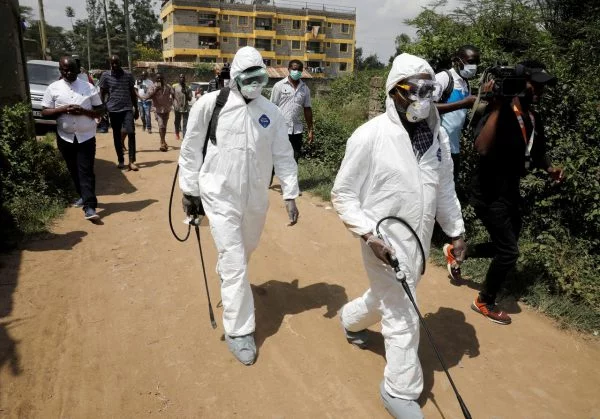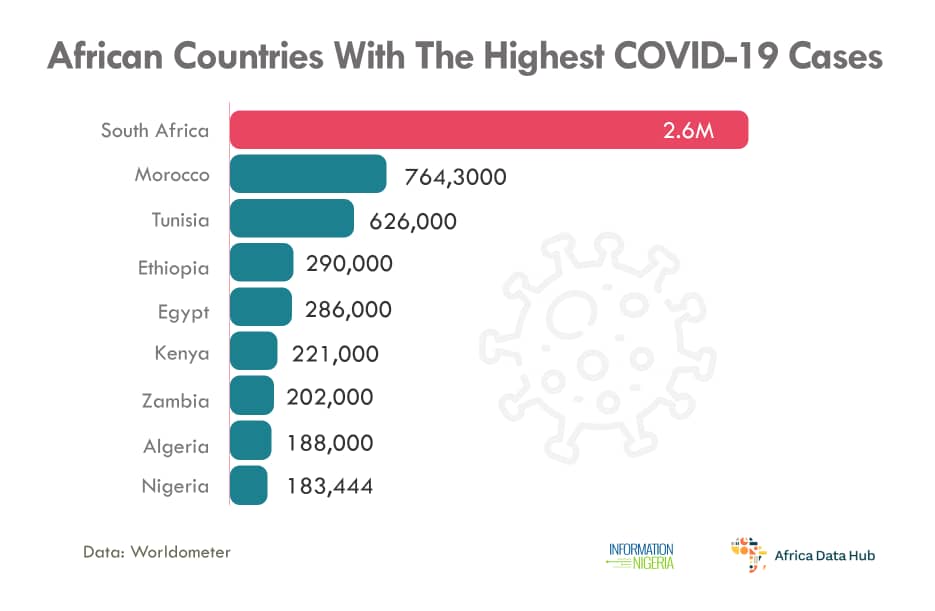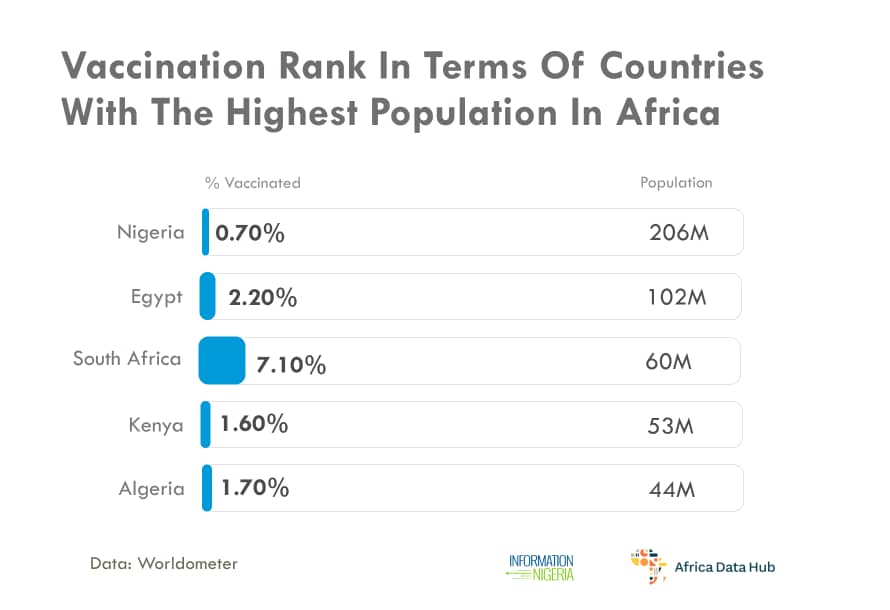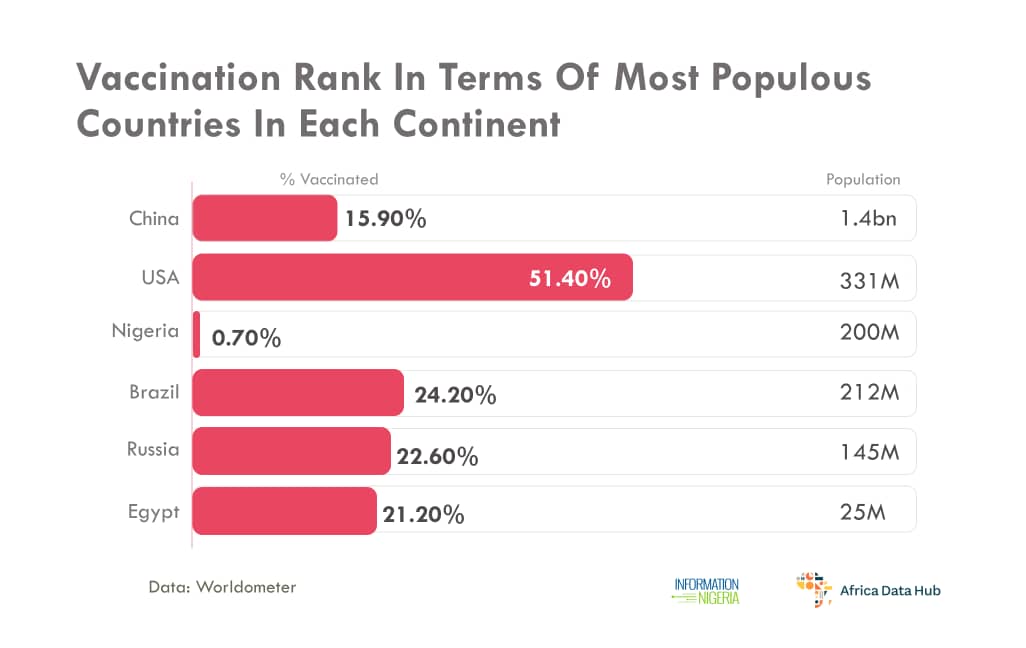
As the COVID-19 cases surges, there have been calls for adherence to non-pharmaceutical protocols to curb the spread of the virus. Nigeria’s response to the virus has been praised wide and far. Recently, the Global’s Normalcy Index ranked Nigeria’s response as the 4th best in the world and the best in Africa.
With this development, there is a need for an in-depth look into the country’s response (pharmaceutical and non-pharmaceutical) to the virus.
Non-pharmaceutical response
Since the index case was recorded in February 2020 in Nigeria, the country has recorded a total of 183,444 cases, representing less than 1% (0.09) of the total population. In that period, 167,459 cases have been successfully treated and discharged, representing 91% of the cases recorded, while 2,229 deaths have been recorded, amounting to 1.2% of the cases recorded. Comparing this with other countries with a high number of cases is the pathway to affirm the assessment of Nigeria’s response to COVID-19.

COVID-19 in Africa
In terms of cases recorded, South Africa sits atop the list in Africa with approximately 2.6 million cases representing 4.3% of its population. Following closely is Morocco with approximately 764,000 cases representing 2.06% of its population. Tunisia sits in 3rd position with 626,000 cases representing 5.2%; Ethiopia with 290,000 cases representing 0.24%; and Egypt with 286,000 cases representing 0.28%; round up the top 5. Kenya with 221,000 cases representing 0.40%; Zambia with 202,000 cases representing 1.0%; and Algeria with 188,000 cases representing 0.42% of its population are the other countries with more COVID-19 cases than Nigeria in Africa.
Pharmaceutical response
Moderna, Pfizer, Johnson & Johnson, AstraZeneca, and Sputnik are the vaccines approved for use in Nigeria by the National Agency for Food and Drug Administration Control (NAFDAC) from March 2021 till the time of filing this report.
According to the National Centre for Disease Control (NCDC), 3.97 million doses of vaccine have been given out to Nigerians as of the 9th of August 2021, with approximately 2.5 million people have taken the first jab. This figure represents 1.3% of the approximately 200 million population of Nigeria. Out of the 2.5 million vaccinated, approximately 1.4 million Nigerians have been fully vaccinated, representing 0.7% of the total population of the country.
When comparing the data in Nigeria to other countries in Africa, Nigeria ranks very low. According to Our World in Data, Seychelles which has 70.2% of its population fully vaccinated ranks top in Africa, followed by Mauritius that has vaccinated 43.5% of its population, and Morocco with 32.5% of its population fully vaccinated. Nigeria is ranked 26th amongst 53 African countries in terms of full vaccination of its population. when compared to the population.

In terms of the highest population in Africa, South Africa with an approximate population of 60 million has the highest vaccination rate amongst the 10 countries with the highest population in Africa. The Southern African nation has fully vaccinated 7.1% of its population. Egypt comes in second in this ranking having fully vaccinated 2.2% of its approximately 102 million, while Algeria in 3rd position has vaccinated 1.7% of its approximately 44 million. Kenya and Nigeria round up the top 5, with 1.6% and 0.7% vaccination rates.

In terms of the most populous countries in each continent, Nigeria is at the bottom of the ranking with 0.7% of its population vaccinated. China representing Asia with an approximate population of 1.4 billion has vaccinated 15.9% of its population fully; the USA representing North America with a population of 331million has fully vaccinated 51.4%; Brazil representing South America with a population of 212 million, has vaccinated 24.2%; Russia representing Europe with a population of 145 million, has vaccinated 22.6%; and Australia with the highest population in Oceania with a total of 25 million, has vaccinated 21.2%.
In conclusion, a critical look at the vaccination rate shows that despite the success attributed to Nigeria in terms of response to COVID-19, the reality is different.
In terms of curbing the spread of the virus in a non-pharmaceutical way, indeed, one can argue that the country has performed well with just 183,444 cases recorded representing a total of 0.0009% of its population. On the other hand, the problem of data gathering and management in Nigeria coupled with inadequate testing kits can mar the success being touted.
In terms of vaccination, from the analysis carried out in this report, it is obvious that Nigeria vaccination rate has been underwhelming thus contributing heavily to the data that less than 2% of the African population has been vaccinated with an estimated 1.7% of the projected 1.341 billion being fully vaccinated.

